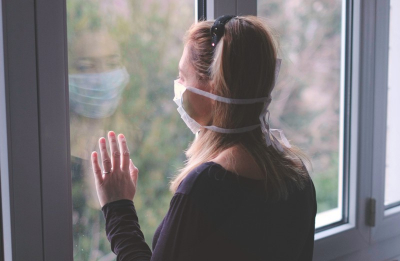Following Spain’s removal last Sunday from the UK’s ‘safe list’, the list of countries you can return to the UK from with the need for self-isolation, this morning Luxembourg also lost its place after an increase in cases was reported. Whilst the move to remove Spain from the list was unexpected, it’s come as no surprise, being peak holiday season, that we’ve had a lot of enquiries this week regarding employer responsibilities and quarantine.
The Government’s position that any country can be removed from the list at any time and without notice, has cast much doubt over whether or not people will be taking their foreign holidays in the coming weeks. After months of lockdown, the prospect of two weeks in quarantine might be a price worth paying for some, but others will worry how their employers will view it and how it might affect their jobs.
Those unfortunate enough to be on holiday in Spain when the quarantine announcement was made, have obviously had little choice in the matter. On their return to the UK they must quarantine themselves. Whilst some airlines have taken away the option to travel to Spain by cancelling flights, a determined individual would probably still find a way to get their time in the sun.
With a few rare exceptions, employers don’t get to dictate what their employees do in their free time; or indeed where they go. So it’s crucial that employers make it clear what their stance is on quarantined employees so that staff can make an informed choice regarding taking their holidays.
First and foremost, we should remember that two weeks quarantine is a legal requirement for people returning from any country not on the exemption list. Therefore it would be illegal for an employer to be seen to encourage an employee to break the rules by asking them to leave their designated quarantine address and come into the workplace. Even if an isolated workspace was made available, the employer could face a fine as well as suffer reputational damage if they were caught.
The default position for those affected is to work from home. For many, this will just be a continuation of life during lockdown, but it’s a different matter for those who can only do their job on work premises, such as in construction, hospitality and retail.
In these circumstances employers will need to negotiate and agree with the employee how the time off will be treated. Holiday is an option, but of course the employee will need to have two weeks of annual leave remaining and be prepared to forgo it. Generous employees might be prepared to continue to pay absent employees but otherwise, unpaid leave might be the only alternative.
You might be inclined to class the time off as unauthorised absence, but this would be harsh on someone who was ‘caught-out’, so to speak. Whether or not you adopt this stance on those who continue with an upcoming holiday that has been booked and paid for is something of a moral dilemma. It might not be seen in a good light to behave in this way against an individual that will lose out financially on a holiday they have been looking forward to for months.
It is possible for an employer to cancel their employee’s booked leave provided they give notice equivalent to the period of leave; so one week’s notice for one week’s holiday. It would be expected that the employer reimburse the employee for any losses incurred in this situation however, which could prove costly.
The above scenarios assume that employees are asymptomatic or have returned a negative test. Statutory Sick Pay would come into play for those who had actually contracted the disease or show symptoms.
Finally, we did hear a rumour that employees forced into quarantine could be furloughed. This might be acceptable for those who were already abroad when the announcement was made but we don’t think it would be right for those who knowingly travel to Countries not on the Government’s exemption list. At the moment, it is still just a rumour anyway.
For help and advice with managing you employees absence, whether quarantined or otherwise, call us on 01452 331331 or e-mail This email address is being protected from spambots. You need JavaScript enabled to view it.



